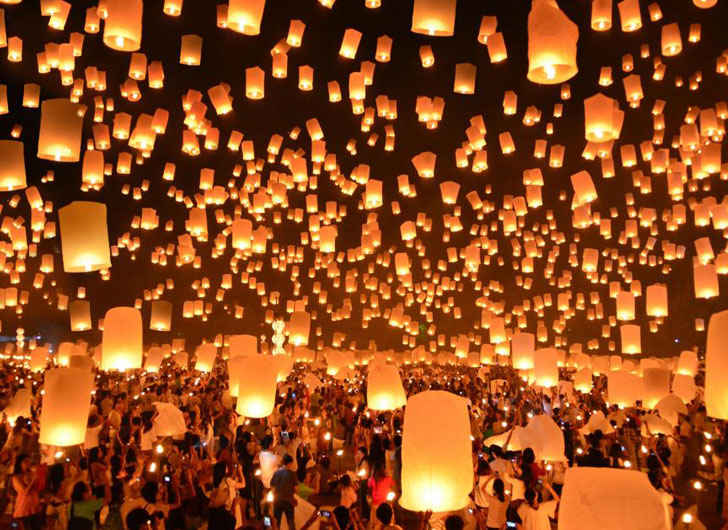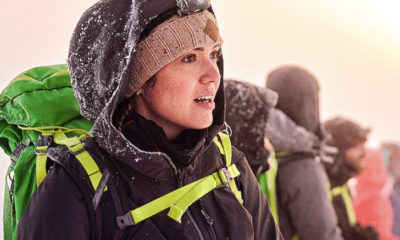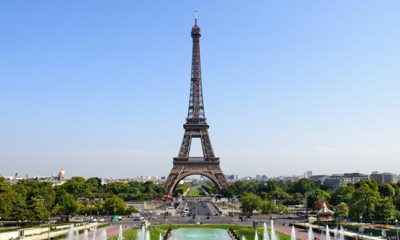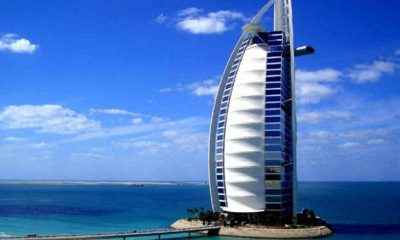LIFESTYLE
Five Places Where January 1 is Not New Year’s Day
Published
7 years agoon
 Source: Getty Images
Source: Getty Images
Not everywhere in the world rings in the new year on January 1st. Many countries follow a lunar calendar, or have specific religious holidays that denote when the new year begins. So, if for some reason you missed out on New Year’s Eve you can always travel to one of the following five places to relive New Year’s Day all over again!
India
Diwali festival. Festival of Lights.
A post shared by BucketList Adventure (@bucket.list.adventure.travel) on
The Hindu festival of Diwali is known as the ‘Festival of Lights’ and symbolizes the victory of light over darkness. Since ancient times it has been celebrated during the autumn and runs for approximately five days. The main festival night falls on the new moon night of Kartik, the Hindu Lunisolar month. During this time leading up to this night the house is cleansed from top to bottom so on the main Diwali night everyone celebrates by wearing new clothes, lighting up the house, feasting, exchanging gifts and praying to specific deities.
China
China, along with many other Asian countries celebrate the Lunar New Year, which falls on different times each year. 2018’s Lunar New Year will be celebrated on February 16. Also known as the ‘Spring Festival’ it is customary to cleanse the whole house prior to the Lunar New Year to sweep away bad luck and make way for good fortune. The Lunar New Year lasts until the 15th of the first month, which is known as the Lantern Festival.
Tibet
The new year in Tibet is known as Losar and lasts for 15 days. Tibetan monks start prepping for Losar on the 29th day of the twelfth month by cleansing the monasteries and participating in religious rituals that involve cooking certain foods. The Losar festivities begin on the 3rd day. This year Losar begins on February 16.
Iran
This year Iranians will celebrate their New Year on March 21. Known as Nowruz, the dates are taken from the Persian calendar and is celebrated on the day of the astronomical Northward equinox. Iranians liken Nowruz to a ‘rebirth of nature’ and they prepare by thoroughly cleansing the home before the holiday hits. Once Nowruz begins, they celebrate for 12 days by spending time with families and friends, lighting bonfires, wearing new clothes and celebrating the lucky number 7!
Ethiopia
A post shared by SISKAAUDII (@siskaaudii) on
Ethiopians celebrate Enkutatash, which falls on the Gregorian calendar’s September 11, or September 12 if it’s a leap year. Considered a religious holiday in Ethiopia, the day also marks the end of the rainy season. Families celebrate by eating a traditional meal of bread and stew and wearing new clothes.
More From Bon Voyaged
-


Virgin Atlantic Announces First Ever Pride Flight
-


Kelsea Ballerini Ties the Knot in Mexico!
-


Eva Longoria Jets to Greece for Another Vacation
-


Mandy Moore Scratches Mount Kilimanjaro Off Her Bucket List
-


26 Destinations That Are On Everyone’s List For Next Year
-


25 Most Popular Flowers To Use For Your Holiday Decorations
-


Toddler Travel Must-Haves
-


Kourtney Kardashian Soaks up the Sun in Mexico
-


25 Top Cruise Destinations For Older Adults
-


27 Evergreen Plants That Are Beautiful All Year Long
-


Why Only the Best Water Fountains Will Do for Paris…
-


The World’s Most Luxurious Hotels

